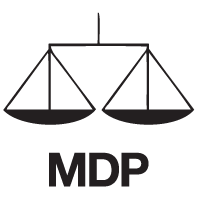20 September 2018, MALE: The Elections Commission’s secret list of foreign election observers has been leaked, with many of the observers hailing from regional elections commissions in authoritarian regimes, and others from countries with questionable democratic credentials.
The 2008 and 2013 presidential elections in the Maldives were observed by European Union and Commonwealth observers, who were credible and independent.
This year, however, the Government of Maldives deliberately left it too late to agree to an EU election observer mission. As such, this time, there will be no independent, credible foreign observers monitoring the elections.
Instead, the Elections Commission appears to have invited a mixed bag of observers, whose independence or competence cannot be verified.
For example, the leaked documents show the Elections Commission has invited representatives of the Thai, Malaysian, Philippines, Palestinian, and Romanian elections commissions; some of these countries have a deeply questionable commitment to democracy and free and fair elections.
The Elections Commission has also invited observers from the Organisation of Islamic Co-operation, a body not known for speaking out against regimes that rig elections.
Other observers hail from the Alliance of Conservatives and Reformists in Europe, a body representing MEPs, while two members of the UK parliament are also due to monitor the vote.
The UK Parliament’s All Party Group on the Maldives
In recent years, certain members of the UK parliament have enjoyed a number of all-expenses-paid, luxury holidays in the Maldives, paid for by the Maldivian government. Some MPs have even brought their wives and girlfriends along, whose air tickets, accommodation, and other costs have been borne by the Maldivian government.
Coincidentally, these Members of Parliament have then gone on to bestow lavish praise upon President Yameen and his regime — often in direct contradiction to the public position of their own government.
The chairman of the UK All Party Parliamentary Group on the Maldives, David Amess MP, has been a frequent visitor to the Maldives over the years, often enjoying stays at luxury holiday resorts. In recent years, he has become one of the main defenders of President Yameen’s regime in the UK.
Amess was found to have taken a number of trips to the Maldives, which he failed to declare in the UK parliament’s register of members’ interests; a breach of parliamentary rules.
In a 2015 meeting with representatives of the opposition, Amess’ assistant stated that Amess passes APPG press releases — which are supposed to be independent — to the Maldivian High Commission in London for their comment and approval, before releasing them publicly.
Another tripper to the Maldives is UK MP Ian Paisley. Paisley joined Amess on a controversial 2016 trip to the Maldives, where Amess was photographed laughing on a swing outside the Maafushi jail cell in which former President Nasheed was held.
Amess praised the prison conditions at Maafushi jail, calling them “quite luxurious” while Paisley and Amess cautioned against imposing sanctions on the Maldives and said the regime had been portrayed in a “rather unfair fashion”.
Speaking at the time, Paisley denied that his all-expenses paid trip — which included business-class air tickets and nights at a luxury hotel — had any bearing on his praise of the Yameen regime.
“If people are suggesting we are having our strings pulled by others, they don’t know very much about me or my colleagues,” Paisley said.
In July, Ian Paisley was suspended from the House of Commons for 30 days for failing to declare two 2013 luxury holidays to Sri Lanka for him and his family worth £50,000. Paisley was accused of being a “paid advocate” of the Rajapakse administration, which at the time faced serious international censure over human rights abuses.
ENDS
